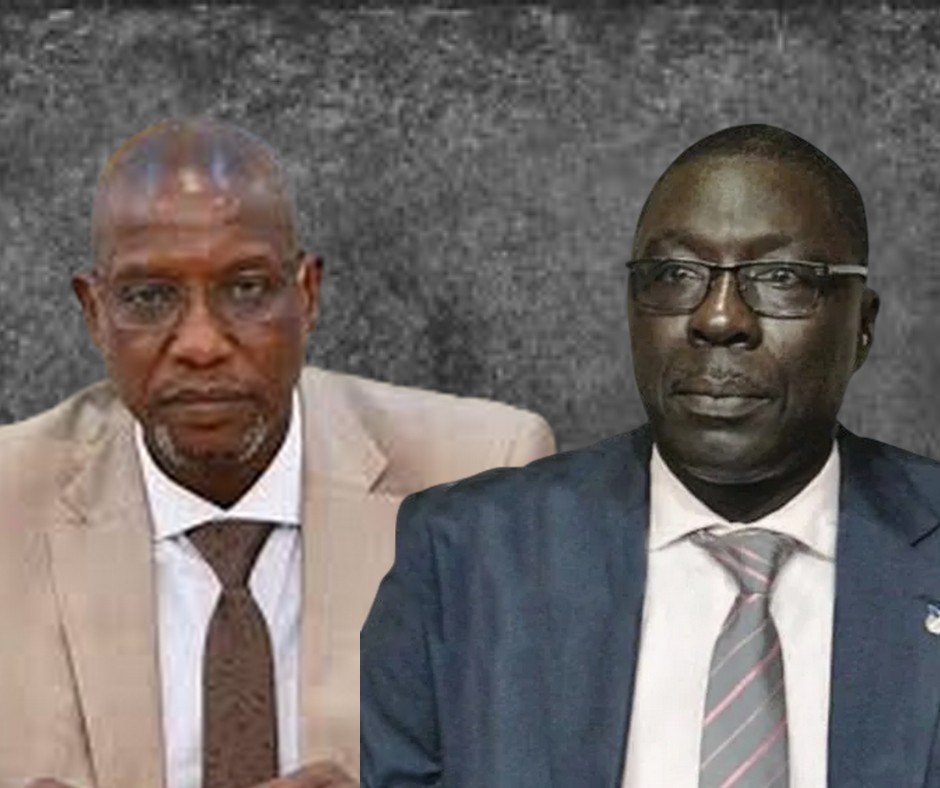EF Small Centre hereby shares key highlights of the 112-page inquiry report of the Joint Finance and Public Accounts Committee (FPAC) and the Public Enterprises Committee (PEC) into illegal importation and sale of Russian petroleum in the Gambia. Given the bulkiness of the report and the complexity of the matter, we wish to provide this analytical summary to simplify it for the better understanding of the public.
We are doing this with the aim of encouraging the public to develop the necessary interest and involvement in this matter which is rooted in corruption, abuse of office and disregard of the law. Ultimately, the attainment of transparency and accountability cannot be guaranteed unless citizens demonstrate immense interest and participation in decision making processes and national issues such as this saga.
Our Takeaways
This report is a damning indictment of systemic corruption, regulatory failures, and institutional negligence in The Gambia’s petroleum sector. It reveals how weak governance, lack of accountability, and collusion between private actors and public officials enabled tax evasion, money laundering, and market manipulation, costing the state millions in lost revenue and undermining public trust.
This report exposes that a culture of impunity exists in the Gambia where high-ranking officials, including ministers, police chiefs and others at the top interfere with investigations and other processes and structures to protect vested interests. This allows companies like Apogee FZC to exploit loopholes with the help of banks, regulators, and even Gam-Petroleum’s leadership, thereby further highlighting institutional collapse. Critical agencies such as the Registrar of Companies, FIU, GRA, and PURA failed to enforce laws, allowing fraudulent activities to flourish, while the Central Bank’s lax oversight enabled suspicious financial flows, including $3 million transferred to Dubai without proper scrutiny.
These weaknesses and malpractices have put the Gambia at grave economic and security risks. The $30 million petroleum deal deprived The Gambia of rightful taxes while distorting the fuel market. The monopolization of ullage space by Apogee FZC threatened national energy security and fair competition.
We consider this Russian petroleum scandal a test for the Gambia’s democracy. It is a litmus test for whether the Government will hold powerful figures accountable or let this become another unresolved scandal. We recall the recent saga relating to the Jammeh assets where similar malpractices by officials have derived the country millions of dalasi necessary for payment of reparations to victims. We can also cite the case of the deaths of tens of Gambian children from consuming tainted cough syrups. All of this highlights how corruption, abuse of office and disregard of the law do not only cost the country economically but also destroy the livesand futures of our people, as well as threaten the peace and stability of the country.
Why This Report Matters
Therefore, EF Small Centre considers this parliamentary report to be highly important that requires the full interest and involvement of all Gambians to ensure that there is full accountability within the shortest possible time. Citizens must realize that corruption directly harms the economy and society. Lost taxes could have funded healthcare, education, or infrastructure. Lost taxes could have provided life-changing opportunities to the youth and women hence prevent or reduce the incidence of the Backway, crime, drug abuse and other risks and vulnerabilities engulfing people. Even with investors, corruption does not spare them. This is because weak regulatory compliance and arbitrary policies deter legitimate business and foreign investment.
This report therefore provides an opportunity and a roadmap to fix systemic flaws such as in the enforcement of laws, corporate transparency, and policy oversight. This report is not just about petroleum, rather it is about whether The Government and the people are serious about fighting corruption which is widespread across all sectors of the state and society. We maintain that corruption is the single greatest threat to democracy, governance and development which can only generate human rights violations, poverty, and conflict. This report is not telling Gambians anything new. Rather it is validating public perception about the prevailing cancer of corruption, abuse of office and disregard of the law that characterizes and permeates across the current State.
Recommendations
We therefore strongly recommend the following:
1. All citizens should develop keen interest in the report to better monitor and demand the President and the National Assembly to ensure justice and accountability,
2. Political parties should take leadership and responsibility to call for accountability,
3. Civil society organizations should play their watchdog roles more effectively by taking up strong advocacy and activist measures to ensure there is accountability,
4. The media should provide consistent coverage of this issue including analytical reviews to ensure that citizens are adequately informed,
5. The President to act without affection or ill to ensure that there is urgent accountability for all wrongdoing regardless of who is involved or affected.
To the National Assembly Members, we recommend:
1. Adopt all recommendations without dilution.
2. Prosecute offenders regardless of political connections.
3. Reform laws and overhaul institutions to prevent recurrence.
If implemented, these steps could mark a turning point for accountability. If ignored, they will reinforce a culture of impunity that stifles development and democracy. The choice is clear: act now or pay the price later. The Gambia’s future depends on it.
2025 – The Year of Transparency and Accountability


